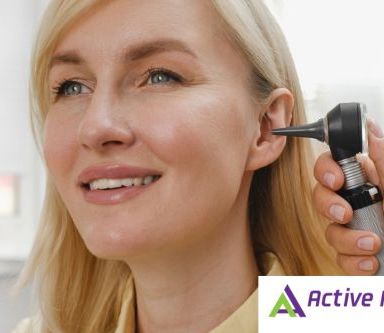
As April showers bring May flowers, they also bring unique challenges for individuals who wear hearing aids. From the risk of moisture damage to difficulties hearing in noisy, rain-soaked environments, navigating wet weather can present obstacles for those with hearing loss. Let’s go over the impact of April showers on hearing aids as well as some practical tips from audiologists near me on protecting and maintaining your devices during rainy weather!
The rainy risks
Hearing aids are sensitive electronic devices that are susceptible to damage from moisture, humidity and water exposure. Rainy weather poses a particular risk, as water can seep into the delicate components of the hearing aids, causing corrosion, short circuits and malfunction. Raindrops can also create noise interference, making it challenging for wearers to hear clearly in outdoor settings.
Tips for protecting your hearing aids in the rain
To safeguard hearing aids from the effects of wet weather, consider the following tips.
Invest in waterproof or water-resistant hearing aids
Some hearing aids come with waterproof or water-resistant features that provide added protection against moisture. These devices are designed to withstand exposure to rain, sweat and humidity, reducing the risk of damage during wet weather conditions.
Use protective covers or sleeves
Protective covers or sleeves can provide an extra layer of defense against rainwater and moisture. These accessories are typically made from durable materials that shield the hearing aids from water while allowing sound to pass through unimpeded.
Seek shelter during heavy rain
When possible, seek shelter indoors or under an umbrella during heavy rain showers. Minimizing exposure to direct rainfall can help prevent water from seeping into the hearing aids and causing damage.
Dry your hearing aids thoroughly
If your hearing aids do get wet, it's essential to dry them thoroughly as soon as possible. Remove the batteries and open the battery compartment to allow air to circulate and facilitate drying. Use a hearing aid dryer or dehumidifier to absorb moisture and prevent mold growth.
Carry spare supplies
Be prepared for unexpected wet weather by carrying spare hearing aid batteries, drying kits and protective accessories with you wherever you go. Having backup supplies on hand can help you quickly address any issues that arise due to moisture exposure.
Contact the best “audiologists near me” with any questions
April showers may bring challenges for individuals who wear hearing aids, but with the right precautions and protective measures, it's possible to navigate wet weather conditions safely and effectively. With these tips, you can minimize the risk of moisture damage and maintain optimal performance! It just takes a little extra care and attention to continue to enjoy clear, crisp sound quality and uninterrupted communication on those rainy days. If you’re in need of hearing aids or have any questions about yours, reach out to the best “audiologists near me.”






Comments